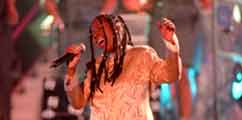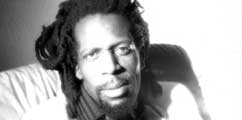When roots music carried the
swing in the 1970s in Britainís young black communities, the
women had a saying Ė Rastafari was Rasta For Him and not Rasta
For Us. In other words there were large number of black kids
in the UK who didnít feel part of roots and culture. They were
upwardly mobile, didnít want to go back to Africa, listened to
a lot of soul music, liked dressing up on a Saturday night,
were open about being influenced by their environment, but
were as proud to be black as any dreadlocked Rastaman.
They were a generation that saw themselves as Black
British, and they created lovers rock, the first indigenous
black British pop style. Although the bassline always let you
know it was reggae, its light, airey productions it
acknowledged such influences as soul and pop music and its
subject matter was almost exclusively devoted to matters of
the heart. Hence the name. It found an enormous market that
the mainstream music business never knew existed, and labels
such as Lovers Rock, Arawak, Santic and Hawkeye put out a
phenomenal amount of product in the late-1970s/early-1980s.
There were sound systems that played nothing but
lovers rock and on more than one occasion it bubbled into the
national charts. While the productions were deceptively
sophisticated in many case the vocalists werenít, but they
were an accurate representation of the styleís audience Ė
young girls and likely lads. The trio Brown Sugar were still
at school, another were called 15,16,17 because of their ages,
while the grand old ladies of loverís rock, Janet Kay and
Carroll Thompson, hadnít yet turned twenty. As far as the guys
were concerned it was largely matter of celebration of self Ė
Victor Romero Evans sang about putting on his "Slacks And
Sovereigns" and Trevor Hartley of simply "Hanging Around".
Lovers rock was also one of the rare instances UK
reggae has influenced Jamaica, as artists like Dennis Brown,
Gregory Isaacs and Johnny Osbourne spent so long in London
they got into it and took it back home with them.
|

